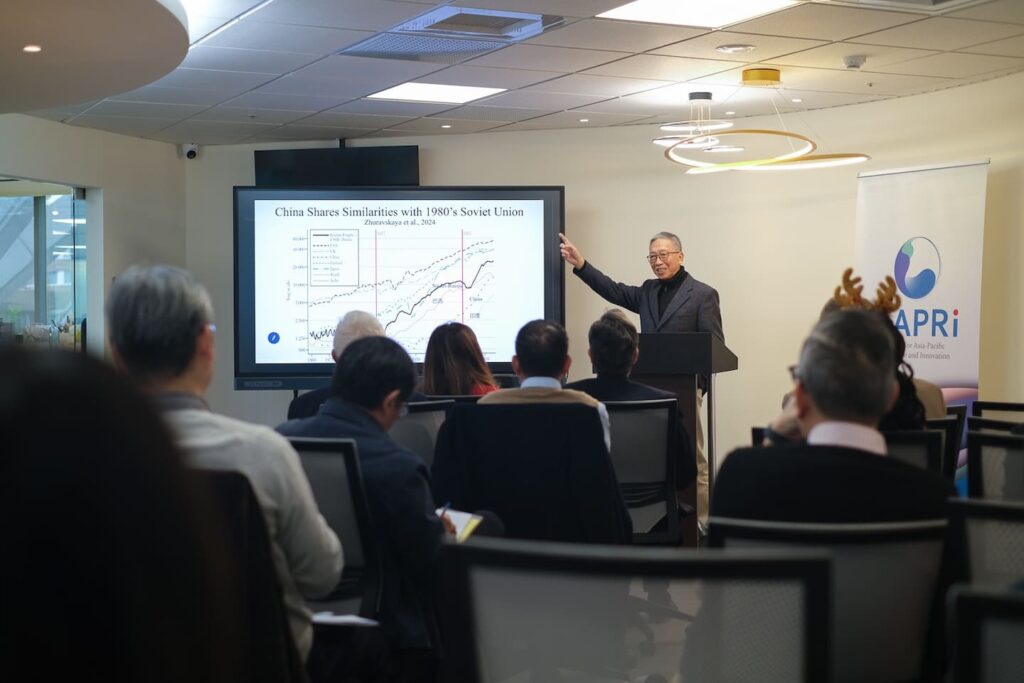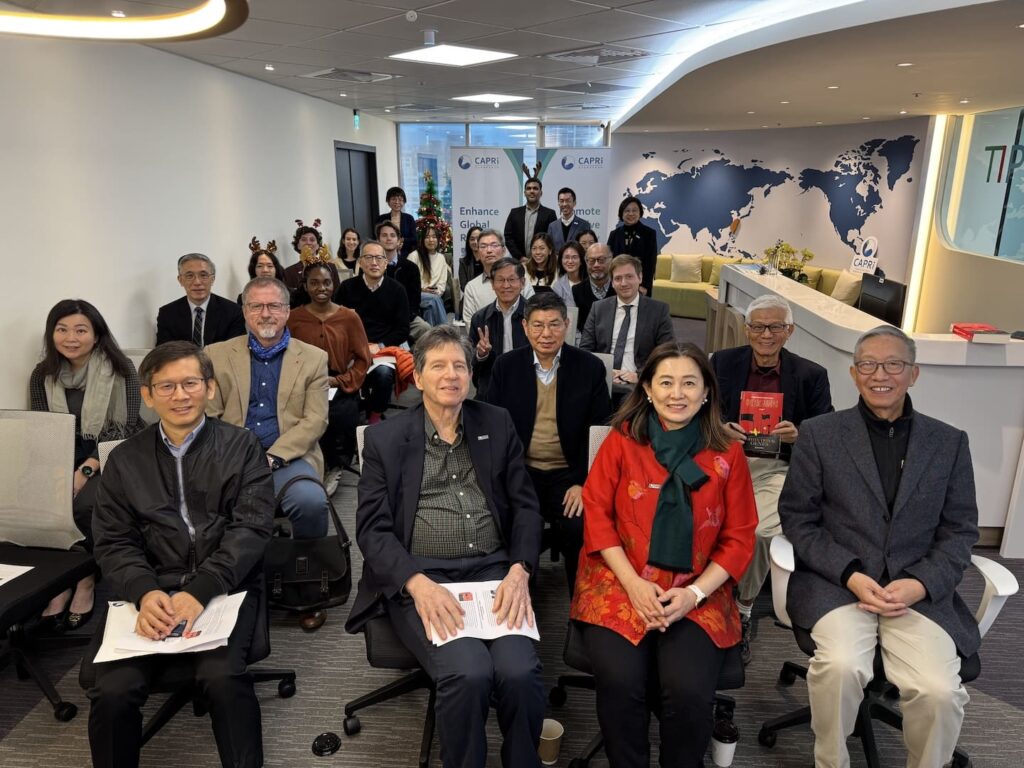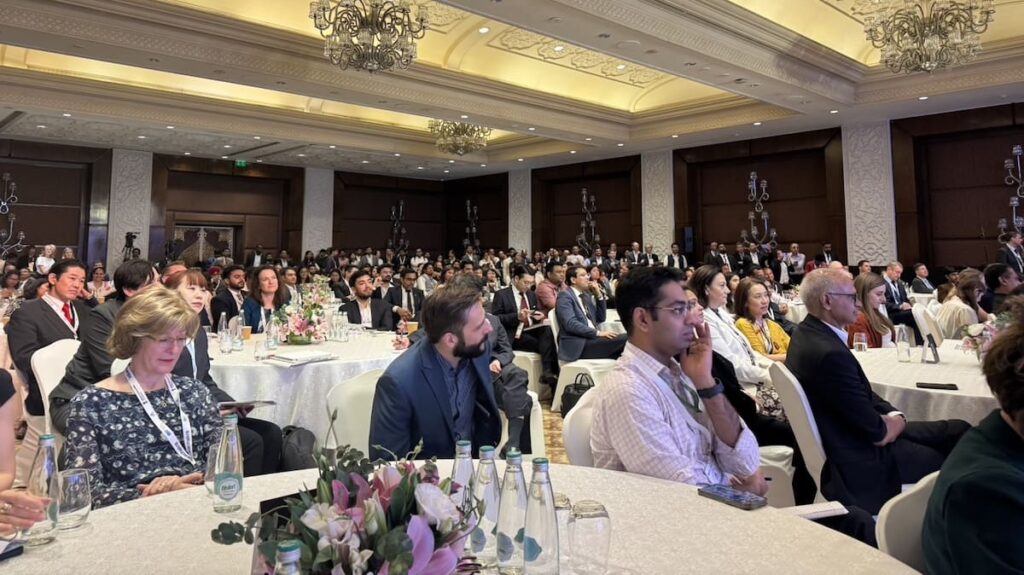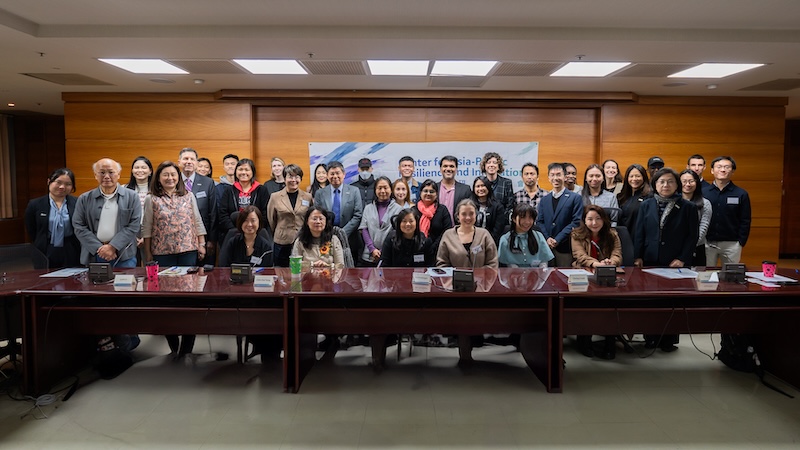On December 23, CAPRI hosted a thought-provoking discussion with Prof. Chenggang Xu, Senior Research Scholar at the Stanford Center on China’s Economy and Institutions. Drawing from his latest book Institutional Genes: The Origins of China’s Institutions and Totalitarianism, Prof. Xu compared China’s economic trajectory with the Soviet Union’s experience and dissected the institutional roots of China’s current challenges.
He argued that if measured using only the official GDP data, China’s rapid growth hides weaknesses in its economy, not dissimilar to the Soviet stagnation of the 1980s. This stagnation is consistent with institutional dynamics in totalitarian regimes, where control often takes precedence over sustainable economic development.
A core concept in Prof. Xu’s analysis is China’s “regionally administered totalitarianism” (RADT), through which the Chinese Communist Party (CCP) maintains control over virtually all facets of society, even with the rapid growth of China’s economy. However, this accelerated growth has come with mounting debt, which has driven short-term GDP growth but is undermining long-term economic stability. Prof. Xu traced the evolution of China’s “institutional genes” from Mao’s totalitarianism to Deng Xiaoping’s reforms and Xi Jinping’s re-centralization efforts, highlighting how these dynamics have contributed to China’s economic stagnation.
Following his talk, which was attended by CAPRI board members, supporters, foreign office representatives, and students, the audience engaged Prof. Xu in critical topics such as China’s debt risks, the improbability of significant reforms under Xi, and Taiwan’s institutional divergence. This discussion shed light on the CCP’s core dilemma: balancing centralized control with sustainable growth and offered a fresh perspective on China’s economic outlook.






